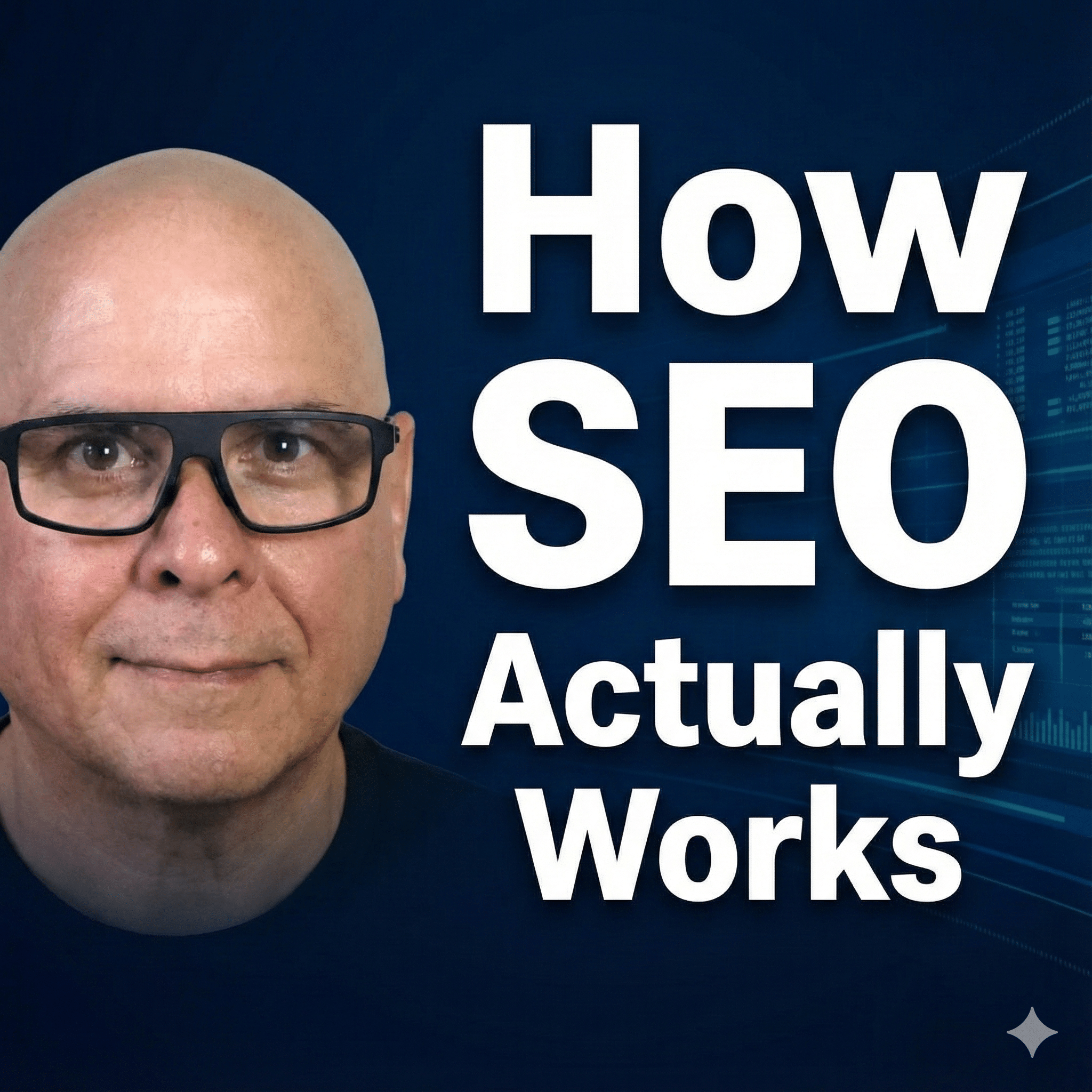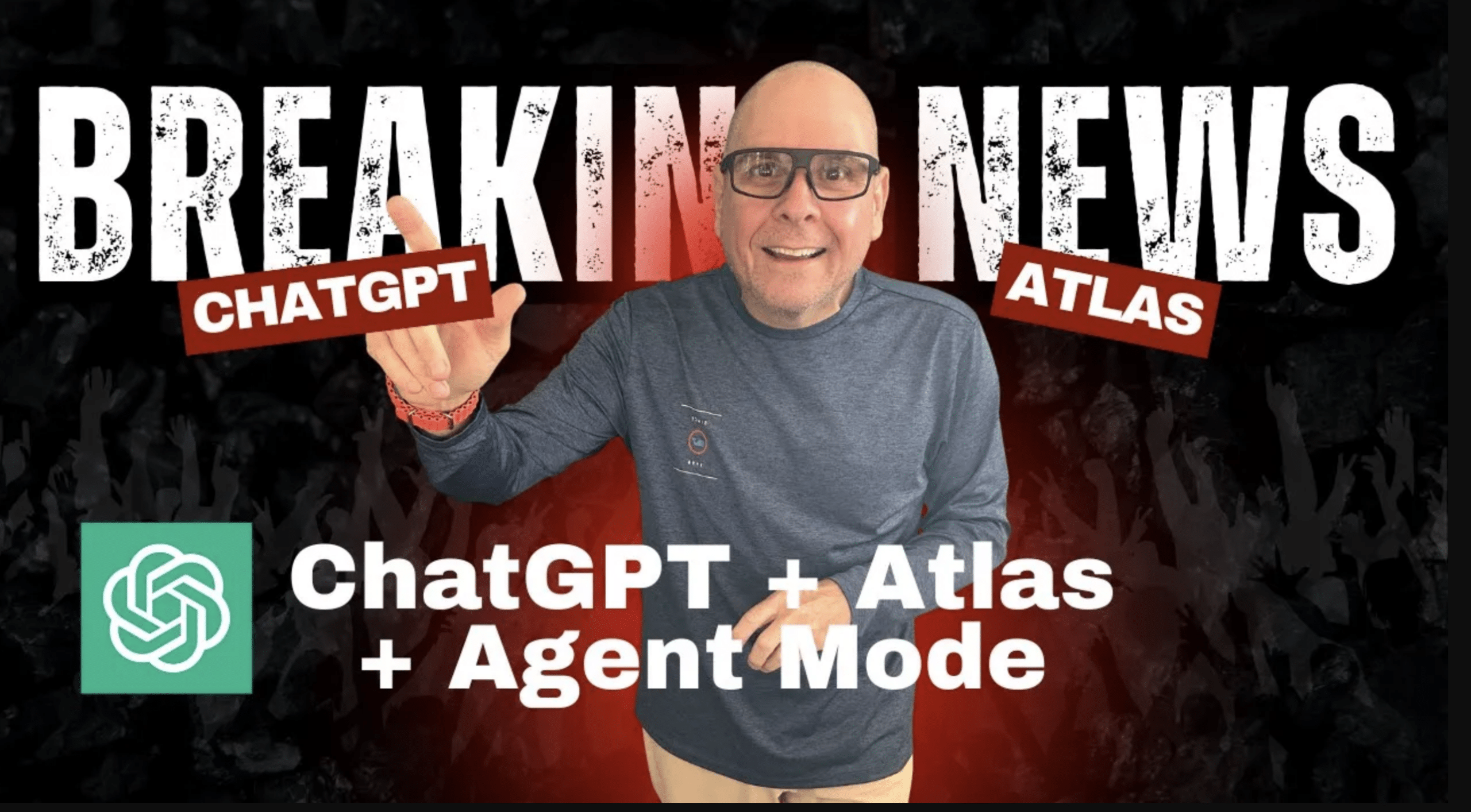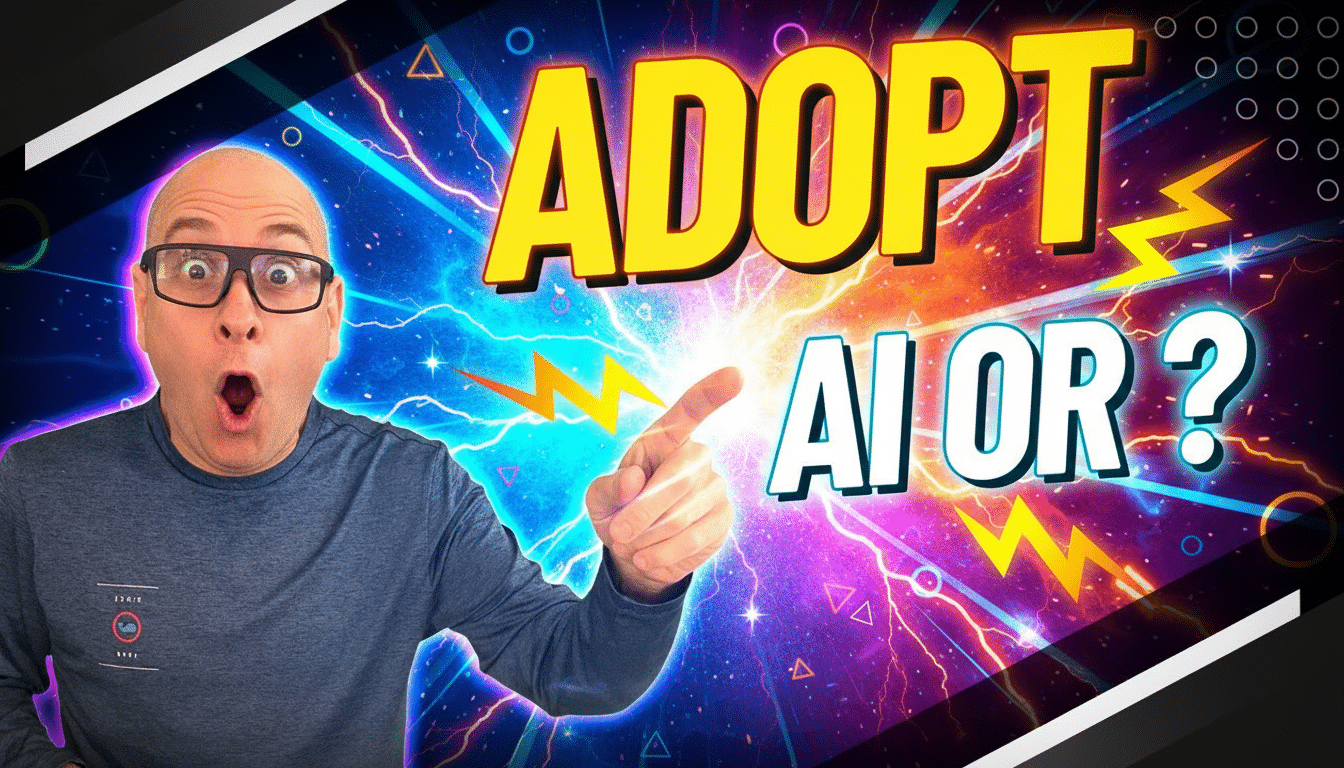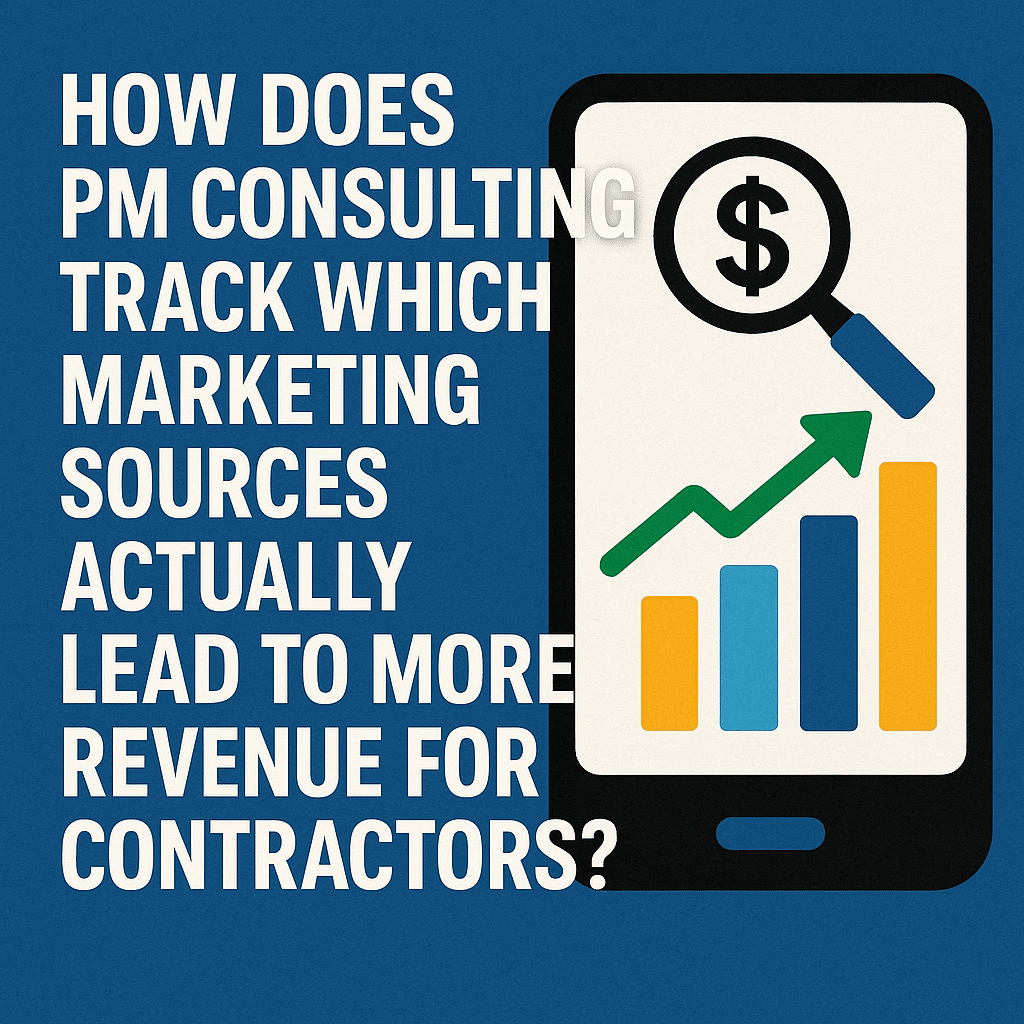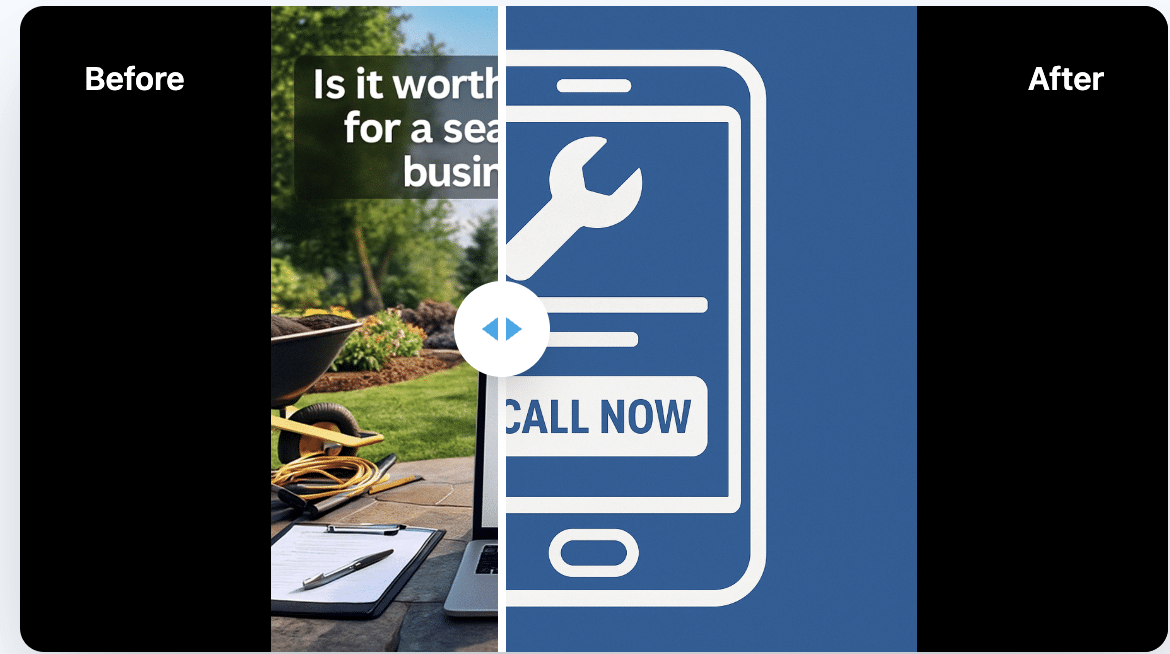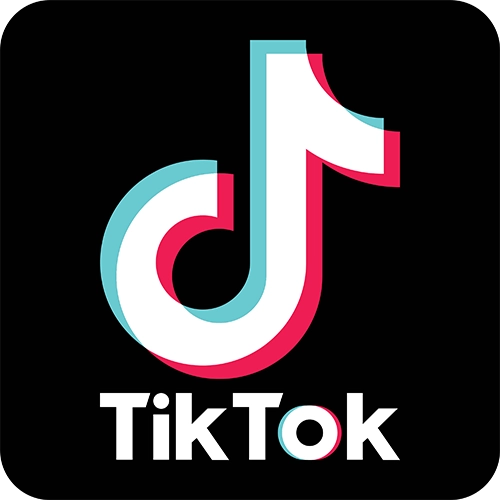What’s the difference between regular webchat and conversational AI on my website for customer service?
If you’re running a home service business—whether you’re in HVAC, plumbing, electrical, roofing, or renovation—you’ve probably noticed that little chat widget popping up on competitor websites. Maybe you’ve even considered adding one to your own site. But here’s the thing: not all chat solutions are created equal.
There’s a massive difference between traditional webchat and conversational AI, and understanding that difference could be the key to capturing more leads, booking more jobs, and growing your business without hiring additional staff.
Let me break it down for you in plain English.
What Is Regular Webchat?
Traditional webchat is exactly what it sounds like: a messaging window on your website where visitors can type questions and get responses. But here’s the catch—someone from your team needs to be sitting at a computer, ready to respond.
Think of it like having a receptionist at a desk. When a potential customer walks in (or in this case, visits your website), they can ask questions. But if your receptionist is on lunch break, helping another customer, or—let’s be honest—out on a job site, that visitor is stuck waiting. Or worse, they leave and call your competitor instead.
The Limitations of Traditional Webchat
You Need Someone Available 24/7 Most home service emergencies don’t happen between 9 and 5. Burst pipes happen at 2 AM. Furnaces quit on Sunday evenings. Air conditioners die during holiday weekends. If your webchat requires a human to respond, you’re missing the exact moments when homeowners are most desperate to find help.
Response Times Kill Conversions Studies show that if you don’t respond to a lead within five minutes, your chances of conversion drop by 80%. With traditional webchat, unless someone is glued to their screen, response times suffer. And when a homeowner has water flooding their basement, they’re not waiting around—they’re calling the first company that answers.
It Doesn’t Scale One person can only handle so many conversations at once. During busy seasons or emergency situations, your chat operator gets overwhelmed. Potential customers get frustrated. Leads slip away.
Limited Information Capture Traditional webchat is reactive. It waits for customers to ask questions. It doesn’t actively qualify leads, book appointments, or gather the detailed information your team needs to provide accurate quotes.
What Is Conversational AI?
Conversational AI is different. It’s not just a messaging interface—it’s an intelligent system that can understand context, remember information, ask relevant follow-up questions, and guide visitors toward scheduling service or requesting quotes.
Think of it less like a static receptionist and more like having a knowledgeable customer service representative who never sleeps, never takes a day off, and can handle unlimited conversations simultaneously.
How Conversational AI Works for Home Service Companies
Natural Language Understanding Modern conversational AI doesn’t just match keywords. It understands intent. When someone types “My AC isn’t cooling,” the system knows they need HVAC service, can ask qualifying questions about the unit’s age and symptoms, and can prioritize the conversation based on urgency.
Context Awareness Unlike basic chatbots that forget what was said two messages ago, conversational AI maintains context throughout the entire conversation. If a homeowner mentions they have a two-story house early in the chat, the AI remembers that detail when discussing pricing or scheduling.
Smart Question Flows The system asks the right questions in the right order to qualify leads effectively. It knows that for a plumbing emergency, it needs to ask about the type of issue, location in the home, and severity. For a renovation quote, it asks about project scope, timeline, and budget.
Appointment Booking Integration Conversational AI can connect directly to your scheduling system, showing available time slots and booking appointments without human intervention. A homeowner can go from “I need service” to “Appointment confirmed for Tuesday at 2 PM” in under two minutes.
The Real-World Impact: A Scenario
Let’s look at how these two approaches handle the same situation.
Scenario: A homeowner visits your website at 10 PM on a Saturday. Their furnace just quit, and it’s 15 degrees outside.
With Traditional Webchat:
- The chat widget is there, but shows “offline” or “leave a message”
- The homeowner types their issue into a form
- They receive an auto-reply: “Thanks for your message. We’ll respond during business hours.”
- Frustrated and cold, they search for another company
- You see their message Monday morning—after they’ve already hired someone else
With Conversational AI:
- The chat immediately responds: “I’m here to help! A furnace outage in this weather is urgent. Let me get you scheduled with our emergency service team.”
- The AI asks key questions: How old is the furnace? Gas or electric? Any error codes showing?
- It checks your emergency service availability and offers immediate time slots
- The homeowner books a midnight appointment
- Your on-call technician gets an automatic notification with all the details
- You’ve captured a high-value emergency service call that your competitor missed
The difference? One approach treats your website like a 24/7 lead generation machine. The other treats it like a business card that only works during office hours.
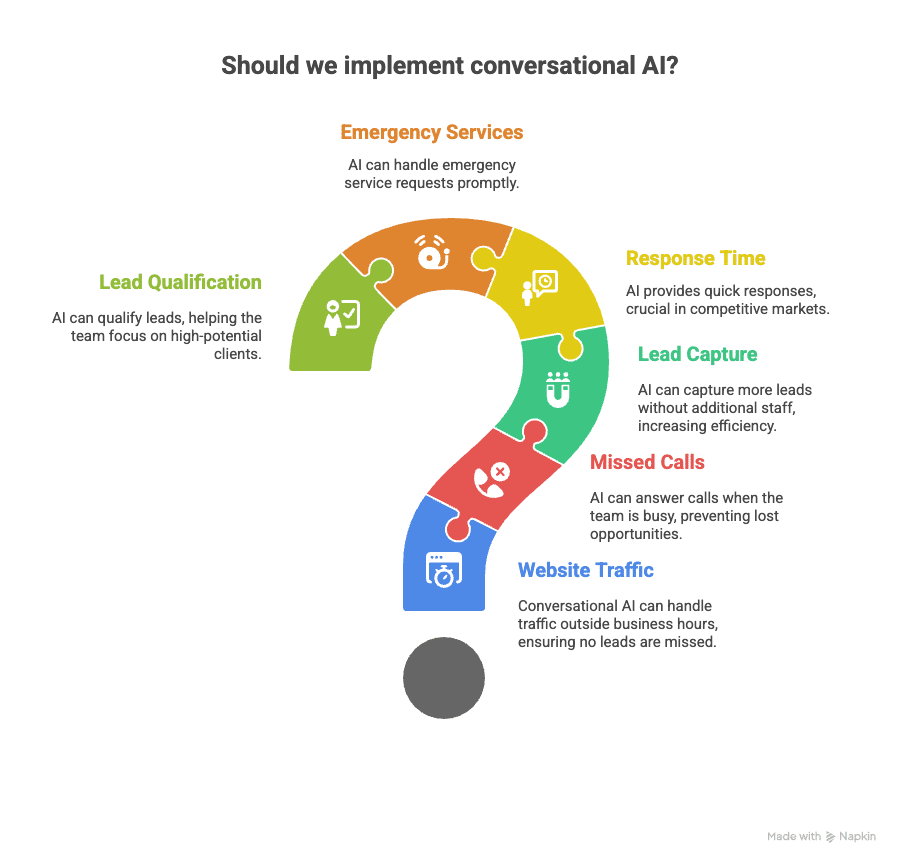
Key Advantages of Conversational AI for Home Service Businesses
Lead Qualification Happens Automatically The AI asks questions that separate tire-kickers from serious buyers. It captures critical information like property details, service needs, urgency level, and budget—everything your team needs to provide accurate quotes and prioritize jobs.
Instant Response = Higher Conversion When someone reaches out, they’re in “buying mode.” Conversational AI responds instantly, capitalizing on that moment of intent. You’re not losing leads to response time delays.
Handles Multiple Languages Many conversational AI systems can communicate in multiple languages, expanding your potential customer base without hiring multilingual staff.
Collects Data for Better Marketing Every conversation provides insights. What questions do people ask most often? What services are they searching for? What objections come up repeatedly? This data helps you refine your marketing and service offerings.
Works While You Sleep Your conversational AI captures leads, books appointments, and answers common questions around the clock. You wake up to booked jobs, not missed opportunities.
Seamless Handoff to Humans When a conversation needs a human touch—complex projects, sensitive situations, or specific technical questions—conversational AI can seamlessly transfer to your team with full context of what’s already been discussed.
What About Cost?
Here’s where the math gets interesting. Traditional webchat requires paying staff to monitor it. Even if you have existing office staff, their time spent managing chat takes them away from other tasks.
Conversational AI typically runs on a monthly subscription, often less than the cost of a few hours of staff time. But it works 24/7/365. When you calculate the ROI based on captured leads, booked appointments, and eliminated missed opportunities, conversational AI usually pays for itself many times over within the first few months.
Is Conversational AI Right for Your Business?
If you’re answering “yes” to any of these questions, conversational AI is worth serious consideration:
- Do you get website traffic outside business hours?
- Are you missing calls because your team is busy on job sites?
- Do you want to capture more leads without hiring additional staff?
- Are you in a competitive market where response time matters?
- Do you offer emergency or time-sensitive services?
- Would better lead qualification help your team work more efficiently?
For most home service businesses generating $1M to $10M annually, the answer is a resounding yes to several of these questions.
The Bottom Line
Regular webchat is better than nothing, but it’s like having a phone that only works during office hours. In today’s market, homeowners expect instant responses and 24/7 availability.
Conversational AI transforms your website from a passive brochure into an active sales and customer service tool that works continuously to grow your business. It captures leads you’d otherwise lose, qualifies prospects automatically, books appointments without staff intervention, and provides the kind of responsive service that turns website visitors into loyal customers.
The question isn’t whether conversational AI is better than traditional webchat—it clearly is. The real question is: how many leads are you willing to keep losing while your competitors are capturing them?
If you’re ready to turn your website into a 24/7 lead generation machine, it’s time to explore what conversational AI can do for your home service business.
Check out this blog: How does PM Consulting’s CRM automation help build repeat business for home service pros?

